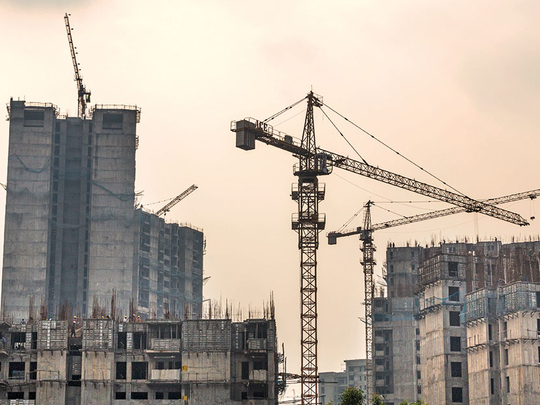
Dubai
Expat Indians with funds stuck in delayed real estate projects in India now have reasons for hope. The chances of these projects being revived in one form or the other have never seemed better.
For that, they just need to thank Rera, (the Real Estate (Regulation and Development) Act), a set of laws that have empowered property buyers in India like never before.
So, for instance, if an NRI in Dubai has seen nothing on his investment in an off-plan project in Delhi’s NCR (National Capital Region) over several years, that will no longer be the case now. Developers who have made commitments and been paid for that will need to deliver. Period.
If not, they will need to come up with some ways to show they can stick to their contractual obligations. That’s exactly what is happening in India’s property market now. “There has been quite a bit of consolidation happening, with larger, better-capitalised developers taking over languishing projects of smaller players,” said Anuj Puri, Chairman of Anarock Property Consultants. “This process is, understandably, largely happening off-the-record — but it is definitely happening.”
At the same time, “Developers are being very cautious with new launches, taking very close market readings about the likelihood of absorption of new inventory. It makes more sense to them to complete their existing projects and thereby remain Rera-compliant.”
What Rera is doing is clean up many of the inefficiencies in the property market embedded over decades. Principally, it has meant that smaller developers who are in for a quick buck have to vacate the scene … permanently.
According to Rahul Maroo, Senior Vice-President at Mumbai-based Omkar Realtors, “We have been approached by small developers who have cash flow and project delivery problems to take these over. If their land bank is good, we will evaluate how that can be utilised by us in future. We expect to take a few decisions on such land purchases involving stalled projects early next year.
“All affected buyers in these projects will be suitably compensated — the Rera laws are pretty clear about this. In a single act, India’s property market has seen the separation of the good and bad developer.”
Omkar has just launched a Rs17 billion, multi-year residential project in Mumbai’s western suburbs, making it one of the biggest such launches in the post-Rera and post-GST (goods and service tax) era.
But it’s unlikely that a majority of developers in India will go the off-plan way. There is so much of inventory available from earlier launches after the Indian economy put in a few quarters of indifferent growth. Plus, developers need to be reasonably sure they can complete the projects they are launching. The Rera provisions have left them with little choice.
Even without new launches, NRIs in the Gulf have plenty to choose from. And they could even extract some bargains if they negotiate hard enough.
“Currently, buyers have the opportunity of opting for brand-new apartments at almost the same rates that made the secondary sales market attractive previously,” said Puri. “Developers are going out of their way to attract buyers with unprecedentedly attractive deals — an advantage that is not available on the secondary market.”
How big those bargains will be depends on where those projects are. If the NRI’s preference is for NCR, he could receive quite a few compelling offers.
According to JLL (India) stats, the NCR currently has the maximum number of unsold units among all the top cities in India. About 200,000 units are currently unsold across the different areas. Greater Noida has the maximum share of unsold inventory, followed by Gurugram.
“There are many reasons for the price decrease in NCR,” said Puri. “To begin with, excessive delay in project construction and possession has hurt buyers’ sentiments and led to subdued demand.
“Many projects have been stalled due to agitations and litigation issues. The massive unsold inventory itself has acted as a sentiment suppressant. Finally, while demonetisation, Rera and GST are potentially positive moves for the industry, they have played a significant role in reduced buyer sentiment, contributing to the price falls.”
But head for the southern cities in India, and a prospective buyer will not get to see to many unsold stock. JLL reckons that the stock has declined by 21 per cent in Hyderabad, 20 per cent in Chennai and 15 per cent in Bengaluru from end 2016 levels.
But, across India, all that unsold stock plus weak demand from domestic buyers make it a good time for expat buyers to put up the cash for a home. And prices too will remain in their favour.
“Prices are likely to remain stagnant for a few more quarters,” said Puri. “Factors such as the huge unsold inventory, recent cases of developers’ bankruptcy or insolvency and the huge number of stalled projects have made buyers sceptical about the market.
“Plus, delay in execution and a dilution of Rera have acted as dampeners for buyers’ confidence. Prices are unlikely to rise near term.”











